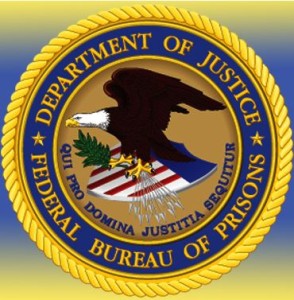For families with loved ones in the Federal prison system life can be exceptionally trying. At one level it is similar to the State system: separation, restricted visitations, limited communications, bars, life changes and sadness. That’s where the similarities stop. There are different rules for visitation, commissary, packages, phone calls and just about every other area that families interact with the system. In addition, unlike the State prisons which are within 1 to 5 hours of Cleveland, a person in the Federal system can be located anywhere in the country.
The information below is only a guide. Policy and procedures can and do differ between Federal prison facilities. The most update-to-date information is on the on the Federal Bureau of Prisons (BOP) website.
“Local” Federal Prison Facilities
Ohio
Cincinnati RRM (Residential Reentry Management) – Cincinnati, OH
Elkton Federal Correctional Institute – Elkton, OH
Northeast Ohio Contracted Correctional Center – Youngstown, OH
West Virginia
Alderson Federal Prison Camp (Female Offenders) – Alderson, WV
Beckley Federal Corrections Institute – Beaver, WV
Gilmer Federal Corrections Institute – Glenville, WV
Hazelton Federal Corrections Institute – Bruceton Mills, WV
Hazelton US Penitentiary (High Security) – Bruceton Mills, WV
McDowell Federal Corrections Institute – Welch, WV
Morgantown Federal Corrections Institute – Morgantown, WV
Indiana
Terre Haute Federal Correctional Institute – Terre Haute, IN
Terre Haute US Penitentiary (High Security) – Terre Haute, IN
Michigan
Detroit RRM (Residential Reentry Management) – Detroit, MI
Milan Federal Correctional Institute – Milan, MI
Pennsylvania (Western)
Loretto Federal Correctional Institute – Loretto, PA
McKean Federal Correctional Institute – Lewis Run, PA
Moshannon Valley Contracted Correctional Institute – Philipsburg, PA
Pittsburgh Residential Reentry Management – Pittsburgh, PA
Visitations
Visitation rules vary by location and by the level of security at the facility. The highlights below are for a typical medium security facility such as Morgantown, WV where these rules were in place at the time of this writing. Using the links above, please check the visitation policy of your loved-one’s facility. High security facilities will be more restrictive, while minimum security facilities may be less restrictive.
Visits are usually restricted to immediate family members (spouse, children, parents, brothers and sisters) that are approved by the facility. Everyone must complete the Federal Visitor Information Form and be approved prior to a visit. In addition, the Federal Visitation Notification Form must be signed and agreed to by the visitor.
- Visitors from outside the immediate family must be approved by the Unit Counselor.
- The inmate is responsible for notifying all visitors of the approval of disapproval to visit and is expected to provide the approved visitor with a copy of the Visitor Guidelines.
- Children under the age of 16 must be accompanied by a responsible adult at least 18 years of age and on the inmate’s approved visiting list. Written approval from a parent and/ or legal guardian must accompany a visitor who is under the age of 18.
- No pets or individuals not visiting are permitted to sit in the vehicle in the parking lot on the institution grounds while you are visiting.
- No cameras are permitted on the institution grounds or in the parking lot.
- The maximum number of visitors at one time will be limited to 3 adult visitors. Exceptions can be made by the Unit Counselor and Warden.
- Visiting hours are very limited and the processing window to be checked in is tightly controlled. Make yourself aware of your facilities times before the visit.
- Dress codes can be summed in one phrase: Dress modestly and show as little extra skin or figure outline as required. No halters, sundresses, crop tops, see-through garments, spandex, camouflage, hoodies, crocks, flip-flops, watches, caps, scarves, etc. The list is extensive. Check with your facility.
- You are not permitted to bring anything into the facility with you other than your driver license, car keys and $20 per person in small bills or quarters for the vending machines.
Visiting hours vary widely. Most are closed to visits during the week and open on the weekend for a limited time, but there is no general rule. Some are open one or two days during the week as well. Like the State system, visiting hours can be adjusted with little or no notice by the warden depending upon prison security status. It’s best to call prior to making a big trip.
Staying in Touch
The following information is greatly abridged from the BOP website. It is highly recommended you double check the policy of your loved-ones specific facility.
Phone Calls
Calling privileges can be extended to inmates to help them maintain contact with their family and friends. Ordinarily the inmates pay for calls. All calls are inmate initiated. You can not call in. Calling times vary with the facility but are generally very short and expensive. All calls to families and friends are monitored.
Inmates can now send and receive email using the Trust Fund Limited Inmate Computer System (TRULINCS). The email system is supported by profits from inmate commissary purchases.
Inmates must be approved to use the TRULINCS system and recipients must give their permission to receive email. No attachments are permitted and messages are limited to about two pages of text.
Like phone calls, email is monitored and screened.
Snail – Mail
Correspondence is encouraged. Rules on packages vary with the security level of the facility. Penitentiaries being the most restrictive and low security facilities being the least. Packages are accepted only with prior written approval by the staff. All mail is inspected for contraband.
Inmates are allowed to have magazine subscriptions provided the publication is not detrimental to the “security, discipline, or good order of the institution, or facilitate criminal activity”.
Inmates can receive hardcover and softcover books and publications if shipped from a publisher, a book club or a bookstore. Again there are variations from facility to facility and upon the inmate’s security level and status.
The official policy on correspondences is covered in a lengthy, legalistic document that is very dry but important reading. A separate policy document covers “incoming publications”.
Sending Money – Commissary
Besides a visit, keeping the inmates commissary account properly funded is one of the single greatest acts of charity you can do for your loved one. Funding the account is however secondary to meeting your own financial needs.
The Federal prison system provides three ways of funding the commissary account. Each method comes with its own benefits, limitations and fees. Which is best depends on the amount and your personal situation. You can send money via a MoneyGram, Western Union or United States Postal service. Never send cash and payment by personal check is not permitted.
In any case DO NOT send money in advance of your loved one arriving at the facility. Make sure they have arrived prior to funding the account. Failure to do so will result in headaches and lost time.
NOTE: Contracted Correctional facilities have a different funding process. Check with them directly.
Again, the Federal prison system has its own set of rules that are similar to but very different from the State system. Always check with the facility housing your loved one. If you have additional information to add please let us know!


